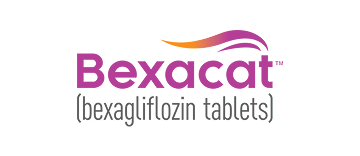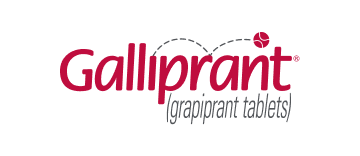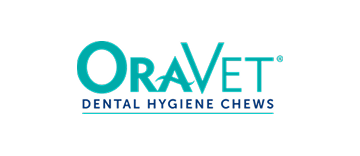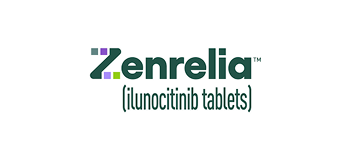Ketoconazole
Prescription required.
You already have a

subscription.
You already have a

subscription in cart.
Your order may arrive in two packages. We ship non-Rx items without delay while the Rx approval is pending. You will receive two tracking numbers.
Prescription required.
You already have a

subscription.
You already have a

subscription in cart.
Your order may arrive in two packages. We ship non-Rx items without delay while the Rx approval is pending. You will receive two tracking numbers.


What is Ketoconazole?
Ketoconazole is used to treat fungal infections. It is also used to treat Cushing's disease. Ketoconazole is available as 200 mg scored tablets (sold per tablet) and requires a prescription from your veterinarian.
For:
Cats and Dogs
Benefits:
- Treats various internal and external fungal infections
- Easy to administer
- Sold per tablet
How does ketoconazole work?
Ketoconazole is an antifungal medication that blocks the formation of cortisol in the adrenal glands and for that reason is used in the treatment of Cushing's disease.
Cautions:
Ketoconazole can interact with many other drugs. Fully disclose to your veterinarian any medications your pet is taking before giving ketoconazole. Do not use in pregnant or nursing animals.
Brand Name:
Nizoral (Janssen)
Generic Name:
Ketoconazole (keet-ah-cone'-ah-zole)
What is the most important thing I should know about ketoconazole?
Do not give this medication if your pet is taking astemizole (Hismanal), cisapride (Propulsid) or triazolam (Halcion). Combined with these drugs, ketoconazole could cause serious, even fatal side effects. In rare cases, ketoconazole can cause severe liver damage. Notify your veterinarian immediately if your pet develops nausea, vomiting, abdominal pain, unusual fatigue, loss of appetite, yellow eyes, itching, or dark urine. These symptoms may be early signs of liver damage.
What should I discuss with my veterinarian before giving ketoconazole?
Do not give ketoconazole if your pet is being given astemizole (Hismanal), cisapride (Propulsid) or triazolam (Halcion). Dangerous or life threatening events may occur. Do not use this medication in pets allergic to it or similar medications. Tell your veterinarian if your pet has liver disease, or if your pet is being given antacids, stomach acid reducers or stomach ulcer medications. Tell your veterinarian if your pet is pregnant or lactating or if you plan to breed your pet.
How should ketoconazole be given?
Give ketoconazole exactly as directed by your veterinarian. If you do not understand these directions, ask your pharmacist or veterinarian to explain them to you. Ketoconazole should be given with food. Do not give ketoconazole within 2 hours of an antacid. Allow plenty of drinking water for the pet. Blood tests or other medical evaluations may be required by your veterinarian to monitor progress and side effects. Store ketoconazole at room temperature away from heat and moisture. Keep this medication out of the reach of children and other pets.
What are the potential side effects of ketoconazole?
If any of the following serious side effects occur, stop giving ketoconazole and seek emergency veterinary medical attention; an allergic reaction (difficulty breathing, swelling of the lips, tongue, or face; hives); or liver damage (yellowish eyes, abdominal pain, unusual fatigue, or dark urine). Other less serious side effects may occur. If any of the following side effects occur, continue to give ketoconazole and talk to your veterinarian; nausea, vomiting, or abdominal pain; diarrhea; headache; dizziness; fatigue; itching. Side effects other than those listed in this guide may occur. Talk to your veterinarian about any side effect that seems unusual or that is especially bothersome to your pet.
What happens if I miss giving a dose of ketoconazole?
Give the missed dose as soon as you remember. However, if it is almost time for the next regularly scheduled dose, skip the missed dose and give the next one as directed. Do not give a double dose of the medication unless directed to by your veterinarian.
What happens if I overdose my pet on ketoconazole?
If your pet has been given an overdose of ketoconazole, contact your veterinarian or emergency veterinary clinic immediately.
What should I avoid while giving ketoconazole to my pet?
Ketoconazole may cause dizziness. Use caution when given with other medicines that may also cause dizziness.
What other drugs will affect ketoconazole?
Do not give ketoconazole if your pet is being given astemizole (Hismanal), cisapride (Propulsid) or triazolam (Halcion). Dangerous or life threatening events may occur. Before giving ketoconazole, tell your veterinarian about any medications you are giving your pet, especially; cyclosporine (Neoral), methylprednisolone (Medrol), antacids, cimetidine (Tagamet), Nizatidine (Axid), famotidine (pepcid), ranitidine (Zantac), omeprazole (Prilosec), lansoprazole (Prevacid), rabeprazole (Aciphex), digoxin (Lanoxin), warfarin (Coumadin), phenytoin (Dilantin), glipizide (Glucotrol). Drugs other than those listed in this guide may also interact with ketoconazole. Talk to your veterinarian or pharmacist before giving any prescription or over the counter medicines, including vitamins, minerals, and herbal products.


Ketoconazole Directions:
- Ketoconazole is a prescription medication used in dogs and cats to treat various internal and external fungal infections. Ketoconazole is also used to treat Cushing's disease.
- Ketoconazole should be given with food. Allow plenty of water for your pet to drink. Do not give Ketoconazole within 2 hours of antacids.
- It is very important that you tell your veterinarian or pharmacist about any other medications your pet is taking.
Results of treatment may not be seen for 1 or 2 weeks and the duration of treatment may last up to several months. The duration of administration depends on the condition being treated, response to the medication and the development of any adverse effects. Make sure you complete the prescription unless specifically directed by your veterinarian. Even if your pet feels better, the entire treatment plan should be completed to prevent relapse or prevent the development of resistance.
Ketoconazole Dosage:
| Weight | Dosage |
|---|---|
| All weights | Dosage depends on the particular disease being treated. |
| Weight | Dosage |
|---|---|
| All weights | Dosage depends on the particular disease being treated. |
| Horses | Do not use! |
|---|
Storage:
Store this product at room temperature.


Ketoconazole Ingredients:
| Active Ingredient (per tablet) | Amount |
|---|---|
| Ketoconazole | 200 mg |


 Swipe
Swipe



















































